Introduction: This guide is based on the experience and experimentation of several in the FATW community. Much content has been inspired or derived from guides and reports from several other RTW and ME2 mods, as well as various vanilla patches, but all has been verified inside the FATW: DOM mod; or, where not, this is indicated. It is to be expected that most, if not all, of this guide should apply to RTW and its other mods, and may be of use for ME2 as well.
It is the unfortunate history of the diplomacy mechanic in RTW that, being largely opaque, it has been inscrutable to the majority, been deemed broken, and, consequently, under- or un-used. The evidence seems to suggest that the most significant difference between the diplomacy mechanics of RTW and ME2 is that the later provides a graphical representation of the attitudes of other factions toward the player faction, so, if diplomacy can be used to some effect in ME2, then such should be the case with RTW.
If you have played RTW and its mods for over a decade without paying much attention to diplomacy, don’t feel bad. Most of the talented and dedicated team who poured their hearts and souls into this mod were in the same boat. A consequence of RTW’s “broken” diplomacy system is that most mods have been balanced without consideration to diplomatic options. This means successful use of diplomacy can weight a campaign so much in the player’s favor as to discredit the mod in the player’s eyes.
However, the fates smiled upon FATW’s development. For, in its most recent incarnation, the decision was made to balance the campaign at the recommended Decidedly Tookish (medium) difficulty in such a way as to simulate the financial and other difficulties of a (vanilla) Very Hard difficulty, but with the less psychotic AI faction disposition. It was also decided that many “brakes” would be imposed upon expansionist activities so as to reduce steamrolling by both the player and computer factions; much hard work and care went into each, and even the smallest, faction, and it was desired that all would have a decent chance of survival well into a campaign.
The happy, if unintended, consequence is that FATW, on recommended campaign settings, is so challenging that the proper use of diplomatic options does not wholly unbalance a campaign, while the AI factions are sane enough to make diplomacy more than a mere exercise in masochism.
Contents:
@01 – Emissary, the Unit.
@02 – Ceasefire.
@03 – Alliance.
@04 – Military Access.
@05 – Protectorate.
@06 – Trading Settlements.
@07 – Reputation.
@08 – Profit.
@09 – Credits.
@01 – Emissary, the Unit.
Ground level for diplomacy is the emissary unit itself. These units have a recruitment cost of 400 mirian and an upkeep of 40. Emissaries are very good poor-man’s scouts, having considerably less upkeep, and trainable in most settlements (not forts/strongholds) right off. They also have a very good movement allowance, making them quite useful for revealing settlements to make your map more valuable (see @08 – Profit).
Emissaries have one visible attribute: Authority. So far as testing shows, this attribute affects how difficult the emissary is to bribe and assassinate, and nothing else. It is not a bad idea to park an experienced emissary in a stack or settlement anywhere near Dwarven, or Elven territory or emissaries. This should reduce losses due to bribery.
Messages concerning emissary rank advancement are disabled in this mod; understandable considering the marginal influence emissary ranks have on the game. Rest assured, emissaries do gain ranks in FATW, and the best way to gain those ranks is to use your emissaries. The more diplomatic proposals they deliver the more chances they will have to gain ranks. This is so even when your proposals are refused, so try to make proposals whenever the opportunity presents itself.
A few particulars that are less well known concerning emissaries:
- Emissaries (and other agents) can be destroyed by military units. Basically, if an emissary’s tile is occupied by the military unit of another faction, and the emissary can move to no adjacent tile, the emissary will be destroyed. One may think of this as rather like a police dragnet, as opposed to the “cloak and dagger” assassination of the rogue. Illustration below:
The military units can be any military unit not belonging to the emissary’s faction; military units belonging to the emissary's faction will let the emissary escape through their tile. Other agents will let the trapped emissary escape regardless what faction they belong to. You can also use impassable terrain in the place of any of the military units trapping the emissary, thus reducing the number of units needed to perform the execution.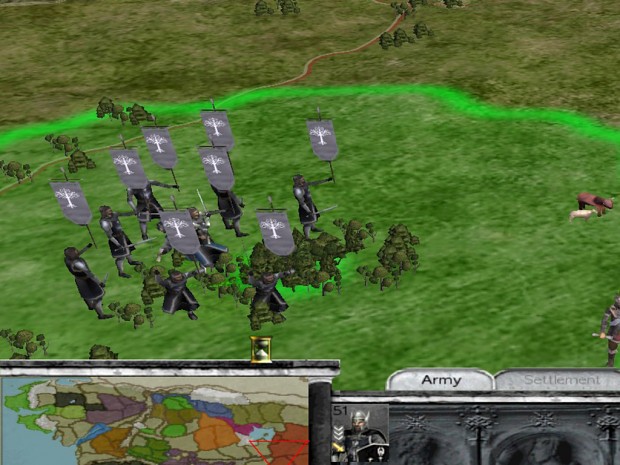
Camps (even empty ones) may be used in place of impassable terrain; however, they cannot be constructed next to each other, or next to an enemy unit/agent.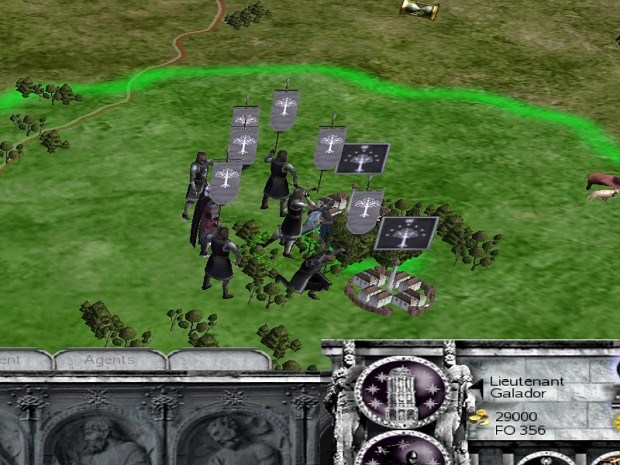
There is evidence that destroying agents in this way damages your reputation with that agent's faction, so it is advised that this be practiced on factions whose opinion you do not value.
- Emissaries (and other agents) move out of the way of military units in a predictable pattern, illustrated below: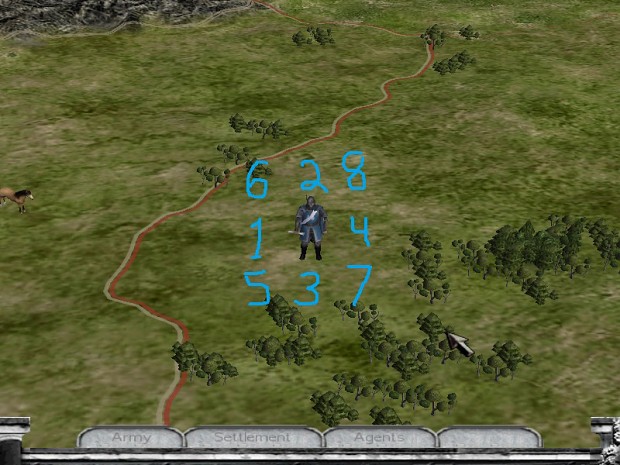
Tiles 1 – 8 are where the emissary will move out of the way of a military unit, in order of preference.
So, for example, if you want an emissary to be forced to move one tile due east, you will need to block tiles 1 – 3 before moving a unit onto the emissary’s tile. You can use this predictability to enable a smaller number of military units (less than 9) to corral an emissary against impassable terrain.
Agents can move out of the way of military units even when the agent has no movement points left. This might be used, under the right circumstances, to move an agent into range of an objective which he otherwise would have fallen just short of in his next turn.
- Emissaries can trade ancillaries: Emissaries occupying the same tile can trade ancillaries (these are emissary specific ancillaries). Use this feature to preserve ancillaries from aging emissaries. Emissaries can share a tile in a settlement, in a camp, or when merged with an army stack or aboard ships. This is true of other agents as well.
- The Kingdom of Dale may build an Emissary Headquarters Specialization Building; emissaries recruited at a settlement with this building begin their career with 3 Authority. Elves and Dwarves also get an Authority bonus to new emissaries in many of their settlements.
- Emissaries can wear out their welcome if they offer too many unwanted proposals in a row. After this threshold has been reached, the AI faction will close talks, ending any further discussion. The effects last only that turn, but be careful not to become unwelcome before you have exhausted the diplomatic possibilities of a turn. You will not want to be in the position of needing a ceasefire at the end of your turn, only to find the enemy will no longer talk to you.
- Emissaries can maintain camps (vanilla forts). If you want to prevent a camp from disappearing, but do not want to, or cannot afford to, keep a military unit at the camp, an emissary will keep the camp maintained. The emissary will not hold the camp against enemy units; they can walk right in; so make sure camps thus maintained are not within reach of enemy units.
- Emissaries can carry plague; something to keep in mind if you inadvertently park or recruit an emissary in a plague afflicted settlement, stack, or ship. This can be useful if you are trying to maintain a plague camp. Plague camps are a way to supply yourself with plague-infected scouts to infect enemy settlements. Given the low populations in this mod, plague can be particularly hard to come by, so setting up a bio-weapons facility once you acquire a sample can be useful. Park expendable emissaries (at least two is a good idea) at the unlucky camp, and each time the plague seems to have disappeared simply move one of the plague carrying emissaries out and back into the fort until it catches again. This is cheaper than using scouts or military units for the same task.
@02 – Ceasefire.
Ceasefires can be had fairly reliably in 3 scenarios: 1) When you and the enemy faction no longer share a land border, 2) when your enemy is at war with another faction or factions in addition to you, and 3) when you have severely beaten the enemy and kept the pressure up by besieging their settlements and blockading their ports.
Scenario 1 is most useful when playing as the Reunited Kingdom. Harad will often agree to ceasefires, and will pay you for the privilege, as long as you do not share a land border. (This makes it desirable to keep Harondor around as a buffer state.) Harad will often break the peace by blockading ports, or send armies to land on your shores, but you can simply sign a new ceasefire. In some cases, a ceasefire can be a good way to hold onto your coastal possessions, as it will break off any sieges Harad may be undertaking - say, of Dol Amroth.
Scenario 2 is best used against factions who are being attacked by several foes. Adunabar, for example, often gets itself into many wars with its neighbors; you may be able to take a settlement or two from Adunabar, and then get a ceasefire at a later date.
In scenario 3, the AI will often initiate diplomacy and request a ceasefire when its defeat appears imminent: All its field armies destroyed, all its settlements besieged, and its garrisons severely reduced. These ceasefire requests are often weighted heavily in the AI's favor: The enemy faction may offer a ceasefire and request a large sum of mirian or several of its settlements back. You may be able to negotiate for more favorable terms for a ceasefire - but you may also be able to negotiate a protectorate at this point (which is by far the preferable option).
@03 – Alliance.
Alliances can be one of the most confusing aspects of RTW for many players. Given our 20th century concepts of what an alliance should be, an alliance in the RTW engine can feel like an abusive relationship with a sociopath. It is important to understand that an alliance is a relationship which requires maintenance. An alliance does not mean you can leave your border unprotected; it does not mean you now have a trained attack dog you can sick on whomsoever you chose; it does mean that you have a foundation for future cooperation, which you may turn to your advantage if you act prudently.
This section is most aimed toward the traditional alliances that will make up most of the alliances in a DoM campaign. The Alliances between the Dwarves and Dale, and between Rk and Rohan are special, and do not require nearly as much maintenance. Also, alliances with the Elves and Shire, if you can get them, are likely to persist due to the passivity of those factions
The first thing you should not do once you acquire an ally is move all your units to a different front. You still need some units, if only one, near the border with your ally. You will notice that your ally will frequently send a stack to your border. This is the AI testing you. Keeping a stack of your own units on your neighbor’s border is provocative, but when the AI does it, the best thing to do, to avoid an attack, is to match the move; even if you cannot match the strength of the AI's stack. Letting an “ally’s” stack loiter on your border; or, worse, on your territory; is an open invitation to betrayal that the AI cannot long resist. Unless the AI is in earnest, he should move his stack away from your border once confronted; move your stack away likewise. If you saw that his stack was significantly larger than yours, it is a good idea to beef up your presence to keep up the deterrent.
Selling alliance can be quite profitable, particularly early on before AI factions have acquired a dislike of the player faction due to unfortunate diplomatic moves, or simple jealousy. Alliances, however, need to be handled with care: they cannot be broken by you without damaging your reputation, and thereby undermining your other diplomatic options.
In Dominion of Men, the Authority of the faction leaders of several factions is influenced by your ratio of allies to enemies (at war). Finding a way to maximize allies while minimizing involvement in wars can be advantageous.
Ideally, you will either make a long lasting alliance with a trustworthy faction (not bloody likely) or, as a means of making money, you will sell an alliance to a faction who can be relied upon to break the alliance of its own accord by attacking your units/settlements/ports. Unfortunately, this is very difficult, if not impossible, to ensure; and it is more difficult the more alliances you hold. If two of your allies attack each other, you will be forced to break one or other of the alliances, and this will damage your reputation.
It is possible to make some income from repeatedly selling an alliance to another faction, relying on that faction to break the alliance of its own accord. This is very difficult to do, however, without severe impact to your standings with other factions. Forming an alliance with any faction will damage your standings with factions of other alignments (RTW religions), and the enemies of that faction.
Manipulating alliances can be tricky, and this is a good reason to keep free of them. In many cases alliances are no better than the virtual parchment they are printed on. Most AI factions are not obliged to go to war based on the war status of an ally. The important exceptions are the Dwarves/Dale and Rohan/RK alliances; these are based on the vanilla Roman factions which shared war status. Both Dale and RK start with other allies - with the Beornings, in the case of the former; and with the Elves and Shire, in the case of the latter - who will not bother to take sides in a conflict unless directly concerned/threatened.
This does not mean your allies will never join you in wars. The mechanic behind the decision-making process is not explicit, but seems designed to result in the outcome least advantageous to the player. In any event, it can be generally relied upon that you cannot count on allies to support you in war. Allies are more practical as a deterrent.
Nevertheless, allies can be forced into a state of war by maneuvering units to start a battle next to a stack of your ally's forces. This is far easier to do at sea than on land, but both can work. The ally will reinforce your units in the battle, and a state of war will automatically be declared between your ally and the enemy faction. Bear this in mind in choosing your battles. Judicious use of the night attack ability can give you greater control of whether allies are brought into conflicts in this way.
If you desire any particular alliance to last long, it is a good idea to invest in military access agreements, as these provide diplomatic impediments to breaking an alliance.
@04 – Military Access.
Military Access comes in two flavors: Access for your troops on your ally's lands, and access for your ally's troops on your lands. To get military access you must be in alliance with the other faction.
Acquiring/granting a military access agreement is usually just a matter of coughing up enough mirian. Experience thus far is that the AI will always expect payment to establish this privilege in either direction. In general you can expect to pay at least twice as much to get military access to an ally's territory as you will to give military access to an ally's troops on your territory. Military access is also given automatically with protectorates, for both factions.
Without a military access treaty, moving units through the territory of another faction; even an ally; is a significant breach of sovereignty and highly deleterious to relations with that faction. A military access agreement will greatly reduce the negative impacts of moving troops through the territories of other factions, and can make an alliance more stable.
Having military access with an ally means troops of one faction can move freely throughout the other's territory. The party that has been granted military access will not be affected by the zone of control which the other faction’s units usually exert in their own territories. The units of the two factions, however, cannot pass through each other, as they can other units of their own faction. This allows the player to use choke points to restrict allied movement.
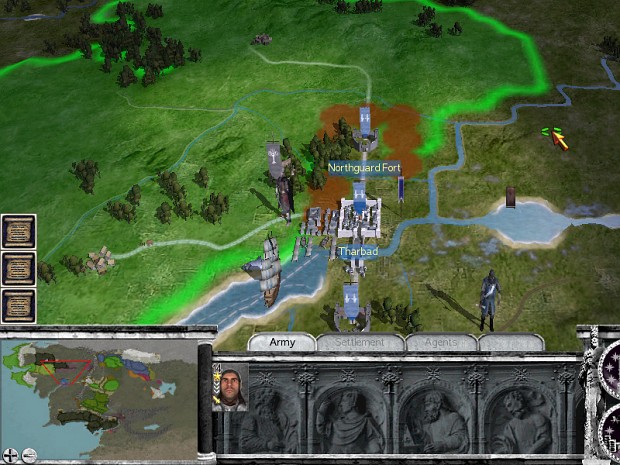
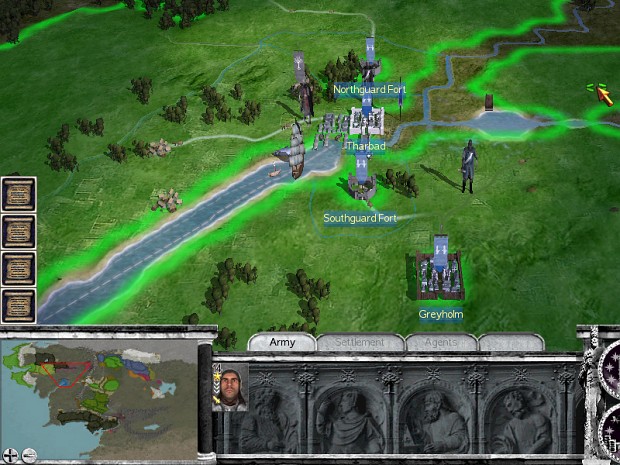
A military access agreement can significantly strengthen an alliance. If access is given to your ally's lands, crossing his lands will not aggravate relations (as much) and your ally will not (usually) be able to attack your units in his territory without first breaking your military access agreement diplomatically.
Conversely, if an ally has military access to your lands, he should not be able to attack your units and settlements in your territories without first voiding the agreement diplomatically. Be warned, however, that this is not a hard and fast restriction, and you may suffer a stab in the back without the diplomatic warning, particularly if you have your own troops in threatening positions on your ally's territory.
Observation has been that a AI will not start a war with the player by attacking the player’s units in the territory of a third party. This can be used to great effect in securing your ally’s borders at choke points.
While the player has the option of cancelling a military access agreement at any time either via the diplomacy screen, or by attacking the ally, the AI factions usually require the diplomacy screen to cancel a military access agreement. As the AI factions seem to initiate diplomacy only at settlements, one way to help preserve a military access agreement is to prevent that faction’s emissaries from accessing your settlements; either by quickly killing off or bribing their emissaries, or blocking access with your military units. Even so, the AI can still take advantage of diplomacy the player initiates to unilaterally cancel agreements. As such, it can pay to maintain good relations with military access allies. One good way to do so is to spend as little time on their territory as possible; particularly, avoid having units stationed next to allied settlements.
It will sometimes be helpful to give military access to an ally you wish to "gift" a province to, as it has been observed that AI factions will prefer to accept thiat proposal only if their troops have access to the province, including through military access rights.
Military access is automatically cancelled when an alliance is broken.
@05 – Protectorate.
The protectorate has been described as the Holy Grail of RTW diplomacy; YMMV.
Protectorate status gives alliance, military access and trade rights in a nice binding package, along with a one-time bonus of whatever the protectorate has in its accounts, and any excess revenues in tribute in perpetuity. “Excess revenues” is not explicitly defined, but seems to be the faction’s end of turn balance above 3000. This means that all expenses are first deducted from income; which likely includes any unit training and projects commissioned. This has a deleterious effect on the protectorate’s economy, as it can no longer commission projects that have a cost above per turn income +3000 mirian. It may be possible for the player to help a protectorate fund larger projects by gifting funds, though, even with the use of scouts, it could be difficult to determine what the moneys are spent on.
A protectorate can sometimes generate a good income in tribute, and sometimes not. It will depend on the protectorate’s economy. They will, at least, not cost money, and might be handy for administering those hard to convert provinces like Gaurgaul. Dale, for example, can greatly benefit by making North Rhun a protectorate, as the alignment penalties and relative poverty of the region would require significant investment to overcome.
Protectorates make excellent buffers. The AI factions’ psychotic hatred of the player faction does not seem to extend to the player’s protectorates. It is a good idea to make protectorates of the smaller factions between you and the heavy hitters on the map. When playing as Harad, you may want to establish Far Harad as a buffer between your faction and the Easterlings, or keep Harondor between you and the northern factions. In some cases, you may need to hand over some of your border territories to a protectorate in order to use them as an effective buffer.
The best from-the-source information we have on the mechanics of acquiring a protectorate is from Guy Davidson at CA who gave this helpful tip on gaining a Protectorate:
“To tempt the faction into submission you need to be at war with them, threaten them quite severely, particularly by massing extensive troops on their borders, blockading their ports and putting the entire faction under pressure. Once that's in place, the faction should be more amenable to subjugation.”
(quoted from Tamur's "RTW Diplomacy Guide"(Forums.totalwar.org) This tip seems to have been made public prior to the release of RTW 1.6; it is also, on the face of it, far from comprehensive.
The methods for acquiring protectorates run contrary to nearly all other diplomatic objectives. Getting a faction to accept protectorate status has nothing to do with getting the faction to like you, and everything to do with humiliating and disabling the target faction. You will need to demonstrate your dominance by defeating all of the faction’s field armies, besieging all their settlements, and blockading all their ports. It is a good idea to make sure you have access to one of the faction’s emissaries so you do not need to lift a siege to initiate diplomacy. It may also be necessary to station large armies on their territory apart from those in the siege armies.
The following two proposals are recommended to use in conjunction with the protectorate proposal in order to minimize expense from the deal:
1. Offer all your money - As mentioned, you get all of your protectorate’s excess income, and this will include the money given in this transaction, so this is a free way of making your offer more appealing. It is preferable to have at least 100,000 in your treasury when attempting to acquire a protectorate, and several times that amount may be necessary. (This sum can be acquired fairly early by rich factions like Dale and Harad.) Given this recommendation, it is advisable to make the protectorate proposal at the end of a turn; if accepted, you will be broke until next turn. There are authority consequences to being broke, so keeping a few tens of thousands in the bank can be helpful if you can manage it, but landing the protectorate deal is far more important than any temporary dip in authority.
2. Threaten to attack - Like all proposals, the AI assigns a monetary value to all aspects of any proposal. Since you will no longer have to worry about offending the target faction, throwing in this item will add leverage at no cost to you; though, be sure you follow through with an attack if they still refuse. This can be satisfied by lifting and imposing again a siege or blockade.
These two items will maximize your leverage in the negotiation and reduce the number of concessions; usually the return of provinces; that the target faction requests.
Beyond that, it may be necessary, or desirable, to offer up settlements to sweeten the deal. The faction’s homelands will be particularly desired. Patience may also be required. Often a faction will refuse protectorate against all reason for several turns. Never fear. Keep their settlements besieged, lifting the siege occasionally so as not to starve them out (unless you want to take the settlement), keep defeating their armies, and eventually they should submit.
Some things to keep in mind: Being defeated in the field can damage your ability to intimidate and make it harder to acquire protectorates. Factions with strong allies may be less inclined to accept protectorate status.
A useful technique when fishing for a protectorate is to offer map information as a trade, rather than gift, leaving the 'demand' side blank, and see if the AI faction comes back with a request for a ceasefire. If so, that AI faction is likely in a good mood to accept protectorate status with the proper inducements. This is assuming the above recommendations are met: i.e., blockades/sieges in place and field armies defeated.
Once a protectorate has been acquired there are some dangers which may exist from preexisting diplomatic agreements. For example: If Harad makes of Far Harad a protectorate while Harad was at peace with Khand, however, Far Harad had a preexisting alliance with Khand. If, then, Khand attacks Harad, Far Harad may escape its protectorate status by siding with Khand as its ally. Such a danger might be avoided by Harad securing a stable alliance with Khand (which would likely be very expensive), Harad preemptively attacking Khand, or Harad gifting its border provinces to Far Harad, forcing Khand to attack, if it would, through Far Harad.
When a faction accepts protectorate status, they become your "allies", but they by no means become your friends. Your reputation with them will be just as poor as when you were at war, so they will not be inclined to agree to diplomatic proposals favorable to you. However, remembering that, as protectorates, nearly their entire bank account will be transferred to your coffers, this attitude can be adjusted easily enough by gifting the protectorate large amounts of mirian. The protectorate will most likely use the large balance to commission expensive projects, with the result that you may not get all the money returned, but it will be easy to make up the difference from the diplomatic options opened up by their improved attitude. It is also a good idea to invest in your protectorates in this way, as helping them to improve their infrastructure will ultimately improve their tribute, and their value as trading partners.
@06 – Trading Settlements.
Another confusing item for many RTW players: In the initial iterations of RTW it was quite easy to sell provinces to AI factions and then retake them to sell again. In the current engine the AI factions now see this trade for the liability it is. In most cases you will have to pay out the nose, or give something the AI values quite a bit, to convince an AI faction to accept a settlement from you. Unfortunately, the AI factions view selling their own settlements quite differently, and expect you to pay for them. Having it both ways …
Nevertheless, there are quite a few instances in which getting another faction to take a province is worth the cost. There are a number of provinces on the DoM map which are quite difficult for the player to hold and develop. Giving such provinces to friendly, or even neutral, AI factions can be a good way of getting the province converted to a compatible alignment, and lets you trade with the province in the meantime.
Another example is placing a province in the hands of a neutral faction in order to create a buffer between yourself and a powerful belligerent. The AI, even the “evil” factions, will not seek to attack though neutral territory. And once the buffer is created, a ceasefire will be more easily acquired.
To successfully gift a province it is best that the province is contiguous with a province of the recipient, or that the recipient can reach the province via territories through which it has military access. You will need to have no military units in the field in that province; you can have all the units you want inside the settlement, but any units outside the settlement, yet inside the province, will sour the deal. Don’t worry, you are not giving up your units along with the settlement; your units will be deposited outside the settlement after the trade is made. Finally, in most cases you will need to part with a good amount of cash; this can be mitigated to some extent if you have other things the AI values to trade, like map information. Once you make the trade, don’t forget to get your military units off the province as quickly as possible so as not to spoil relations with the new owner.
It is possible; though quite rare; to acquire settlements via diplomatic trade as well. In most cases this will be a faction seeking a ceasefire with you due to being in conflict with several other factions, and likely to lose the proffered province in any case. In DoM you get a bonus with provinces acquired in this fashion of a large number of small garrison units. These units are quite handy for such things as the dragnets to destroy enemy agents, maintaining camps, and proving a small garrison for settlements that do not need large ones.
@07 – Reputation.
This is, by far, the most speculative section of this guide. Due to the inherent lack of transparency in the RTW diplomacy engine, combined with myriad factors potentially affecting diplomatic relations each turn, many theories have been proposed and discarded in the making of this guide to explain observed phenomenon. The content to follow will likely be subject to revision, and readers are encouraged to offer evidence to support or refute these conclusions.
Reputation seems to include three scales: one global, one faction specific and one alignment specific. This proposed model is partially based on the better understood reputation model used by ME2, which is supposed to be closely, or directly, based on the RTW model, though with a much more helpful interface.
Faction: The faction specific scale seems most affected by positive and negative actions, both diplomatic and military, directly affecting the individual faction. Things like gifts to a faction will have a positive effect on your reputation with that faction. Things like trespassing on a faction's territory will have a negative effect.
The faction scale can also get sympathetic influence from positive and negative interactions with the allies and (at war) enemies of a faction. Giving gifts to the ally of a faction should give a (small) sympathetic bonus; likewise, a faction will like you more if you are pummeling the faction they are at war with.
Campaign objectives also play a role, if you are in possession of a faction's campaign objective; especially if it is adjacent to one of that faction's provinces; your relations are likely to deteriorate. Holding another faction's home provinces, even if acquired from a third faction, will also negatively affect your reputation with that faction. Negative results may also result from destroying a faction's agents, either via assassination or dragnet, though not from failed missions (of the AI faction's agents).
In ME2, use of scouts and rogues against a faction will also have a negative impact on reputation with that faction; this may be so in RTW as well.
Global: The global scale seems to be affected by the player's adherence to ethical standards; the AI seams to be under no such constraints. Basically things like not breaking promises; following up on promised actions. This is the factor which makes alliances so tricky. If you have an alliance with two other factions and those factions go to war with one another, you will be forced to break your alliance with one of them, and this will damage your reputation globally. If you promise to attack another faction, but instead sign a ceasefire with them, or threaten to attack a faction, but do not carry though with the threat when refused; these cause other factions to doubt your credibility and negatively affects your global reputation.
Another factor which might play a role; as it does in ME2; is your choice of action when capturing a new province. If so, then occupying a settlement will give a slight boost to global rep, expelling will cause a slight drop to global rep, and laying desolate will cause a larger drop. If this factor is in play, it is the only way I know of directly positively affecting global reputation.
Alignment: The alignment scale is the most recently deduced. It has been observed that AI factions care about the diplomatic relations you have with factions of other alignments, without regard to any diplomatic status between the AI factions themselves. A WotW faction will not like it if you have positive diplomatic relations with a WoD or Cultic faction, even if the WotW faction is currently in alliance with the WoD/Cultic faction. Selling map information to Rhun, for example, will reduce your reputation with every WotW faction, even the ones allied with Rhun.
It seems only a few diplomatic options do not result in a negative feedback with factions of other alignments: ceasefire, trade rights, and extortion (demand money with "or we will attack"). It is not yet clear if protectorate status makes any difference. There are some who suspect that trade rights, or perhaps trade itself, will have negative effects, though I am aware of no compelling evidence of this.
It does not seem to mater what the player faction's alignment is, or becomes in the course of a campaign; though each faction begins with preset attitudes to the various AI factions which will likely predispose the player in a particular direction.
This alignment based scale means that a player will do best to pick an alignment to get cozy with at the beginning of a campaign, and stick with that alignment until late in the campaign. Path dependency plays a large part, as, by making friends with one alignment, you will dig yourself a big reputation hole with the other alignments which will require significant gifts to overcome should you decide to do so. WotW, being the starting alignment of the large majority of factions, has a significant advantage over other alignments as diplomatic partners.
One last known ME2 mechanic which may be present in RTW is reputation normalization. This acts upon the global rep scale and sets a "normal" relations mark toward which global reputation will drift each turn in the absence of other influences. This mark ranges from positive at easiest campaign setting, to very negative at hardest campaign setting. This would mean, if playing on "Laughing at Live Dragons" campaign difficulty, that taking no actions affecting your reputation would see all factions eventually hating you, while on "Slightly Tookish" the same inactivity would see all factions eventually liking you. This is another factor which, if at play, would account for the difficulty in discerning the actual effects of actions on reputation; which could be considered an argument in favor of its existence in RTW.
@08 – Profit.
Where the money comes from: The evidence suggests that moneys gleaned from AI factions through diplomacy are not taken from, or restricted by, AI faction bank balances. If this is so, it means the diplomacy engine is essentially printing money, and dealing with the AI factions is rather like dealing with the unscrupulous friend who has talked you into letting him be the bank for your Monopoly game (for the last time!). You will find that you can, in some circumstances, get far more mirian out of an AI faction than they could possibly have in their coffers.
Two factors seem the most influential in how much money you can get out of an AI faction in diplomacy; how much they like you and how much they fear you; though each may not be a factor in every proposal. If you are asking for a favor, like financial support or military access, how much the faction likes you will be a significant factor. If you are demanding tribute or a ceasefire, how much they fear you will be more important.
Here are the proposals you can use to get money out of the AI factions:
Map information: You can sell map information to just about any faction. An AI faction has to have a very poor opinion of you to refuse to pay for your map information. Be careful though, as factions take a dim view of selling map information to their enemies, or to factions of other alignments. You can sell map information to a faction more than once, as you reveal more of your map. The AI values map information based on how many settlements are revealed by the transaction. Usually, between turns 10 and 20 all the map will have been revealed and you will no longer get buyers for map information. However, this proposal option is still helpful in late game: By offering map information as a trade; not a gift; you can often get an AI faction to counteroffer, revealing what that faction is interested in.
Trade rights: Whether or not you can get a faction to pay you for trade rights depends on the relative strength of your economy. If your economy is quite strong you may get some money from factions wishing to trade with. If it is weak it may still be worth it to pay a little money to get access to more income from trade. Trade rights have to be reestablished after a ceasefire, so it is possible to get paid for trade rights more than once.
Extortion: If you have a particularly strong military, or your neighbor already has a lot on his plate, it may be possible to demand money from your neighbor in exchange for a promise not to attack. Your threat will need to be credible, meaning you will need a force sufficiently strong to intimidate near, or even in, the AI faction's territory. It is rarely possible to extract enough mirian from this tactic to cover the cost of the forces required to intimidate, but it can be an option if you have forces in the area with nothing better to do, are not yet ready to open up a front in that direction, and don't mind ruining your reputation with the target faction.
Ceasefire: It is often the case that an AI faction will get itself in hot water, with too may fronts, and will be willing to offer a substantial amount of money to close one of those fronts. Both Harad and Adunabar are often in this position. It is significantly easier to get a good amount of money from a ceasefire if you do not share a border with the belligerent.
Alliance: Particularly early on, it is possible to sell your allegiance to AI factions. As a campaign progresses your global reputation is likely to sink low enough that you will need to start paying other factions to ally with you. Taking on alliances willy-nilly is not usually advisable as it will likely result in a precipitous loss of reputation as you are forced to break alliances when your allies start fighting each other. Military access, given or received, seems to always cost money. Making an alliance with a faction of one alignment will have a deleterious effect on your reputation with factions of other alignments.
Attack faction: You can make significant income, particularly in the early campaign, with this gem. Every time you can attack anybody you have the opportunity to ask other factions to support the attack financially. You can ask this of other factions multiple times each turn, though with diminishing results. Any attack; blockading a port, besieging a settlement, even attacking an enemy stack which declines battle; will satisfy the promise. Defensive battles, no matter how impressive or damaging to the enemy, will not satisfy the promised attack. Ambushes are reversed: If you are ambushed it is considered a defensive battle for you, if you ambush the enemy you are considered to have made an attack.
You can ask for money for an attack on one faction while you have yet to fulfill your promise against another faction, but you must be careful not to request money for an attack on a faction if you already have an outstanding promise to attack that faction with the current interlocutor. Doing so, even once, will irreparably harm your credibility with that faction and make it very hard, or impossible, to get money from them in future. You will likewise destroy your credibility if you accept a ceasefire with a faction against whom you have an outstanding promise to attack.
@09 – Credits.
The entire FATW development team, in all its glory
Also contributing:
twcenter.net:
Wambat
CountMRVHS
athanaric
Nelduin
webba84
demagogos nicator
Stark1
MuhammadAus
Spiff
Senator
Peter
Acamas
Peter
fenixal
|Sith|10|Darklord_Max
SuperMan1054
Drustan
Blatta Optima Maxima
Brusilov
Vicious the Conqueror
Recluse
Kalos
UhOhIt'sAnArrow
Strategist
Rockingduck
totalwar.org:
Tamur
Quietus
Youtube:
infernocanuck
comp.sys.ibm.pc.games.strategic:
shadows
And:
taw's blog: Why everyone hates you in Medieval 2 Total War
Postscript:
The content for sections 7 and 8 are still undergoing research. The research is relatively straight forward but has unavoidable man-hour requirements. Anyone inclined to assist in this research is invited to post below or PM me. Skills required are that you be able to play the game and follow a few simple instructions. Credit will be given, gladly, to anyone who so contributes.
Comments on anything felt to be in error; any observations or experiences felt to be helpful; any screenshots or videos felt to be illustrative, will likewise be incorporated, gladly, into updates of the guide if deemed appropriate, along with credit.
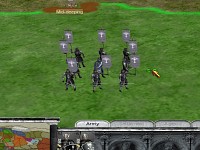
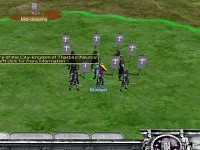
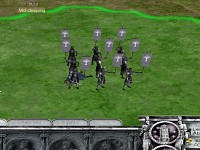
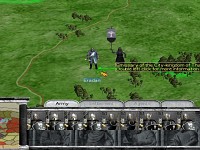
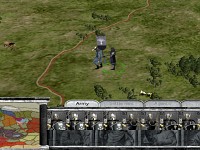
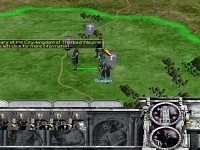
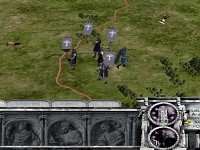



A good read, thanks.
Very insightful